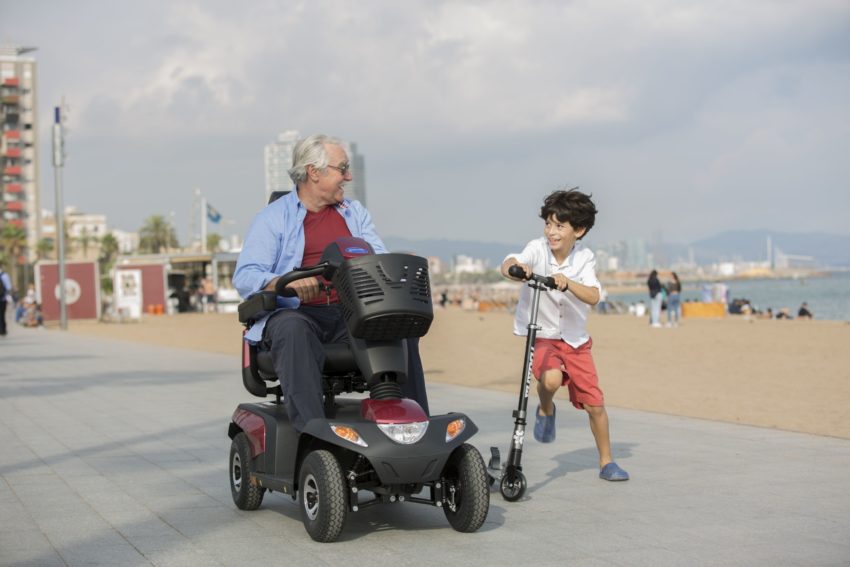Rarely have I been asked a question about mobility scooters more regularly than “how do I maintain my mobility scooter?” or “what conditions can I use my scooter in?”
The main areas of maintenance people enquire about are storage, battery and motor so I will cover these in some details whilst making it as realistic and practical as possible.
Storage
By storing your mobility scooter in the right environment and checking it regularly, you can ensure it continues to provide you with freedom and safety for many years.
Your mobility scooter should be kept dry, secure and clean when being stored either overnight or for longer periods of time. If this storage has access to mains electricity then it is an added bonus as this means that the scooter can be charged at the same time. Every battery has a self-discharge when not used, hence it should be charged regularly, even if the scooter is stored fully charged for a couple of weeks (for example in the winter) .
For some people this might mean that you are storing the scooter inside of your home but for those who have more outdoor space then a garage, garden shed or purpose build storage unit would be just as appropriate. Remember though that the scooter should not be stored in damp areas so if storing in a shed for example it may require some form of damp proofing or treatment to ensure its longevity.
Your scooter is not waterproof so if you have neither the space to store the mobility scooter indoors or in any form of outdoor storage then you will need to purchase a waterproof hood to cover it from the elements. Keeping the scooter dry and clean reduces risks of corrosion.
However, this then raises the question about use of the mobility scooter in the rain. Living anywhere in Europe we know better than most how unpredictable the weather can be, and it would be unrealistic to say ‘don’t use the scooter in the rain’. If you get caught in a shower don’t panic, just get under cover if you can. At least avoid driving through puddles, and take extra care when you store it away to wipe it down with a dry cloth, paying particular attention to the upholstery and electronics. There are however weatherproof covers that can be used to keep you and the scooter dry during use if you want to limit any anxiety you might have about inclement weather or find it difficult to dry the scooter after use.
Battery
For obvious reasons one of the most critical parts of the Mobility scooter is its battery. However, despite some very detailed information provided in user manuals people still often focus on myths or become anxious about elements that are entirely within their control.
So, let’s clear up the facts.
All mobility scooters will come with some guidance about how long the battery will last from a full charge, based on surface, load and speed. However, this is only accurate if you keep the battery charged.
The battery needs to be fully charged before its first use and may not provide maximum capacity until it has been run through 10-20 charging cycles.
Although gel batteries don’t have a ‘memory effect’ as some may think it is still important to charge the battery fully after each discharge/use (whether full or part).
To manage the risk of damage, before storage you should dry off your scooter with a towel if it becomes wet. The scooter should always be stored in an environment that is not going to expose it to extreme temperature highs or lows as this encourages degradation, corrosion and impacts on capacity.
However, remember that no matter how well you look after the battery its full capacity will reduce over time so I would recommend having your battery tested as part of an annual service.
Hopefully this has allayed some anxieties and provided information that will allow you to continue enjoying the freedom, control and safety that mobility scooters afford for years to come.
